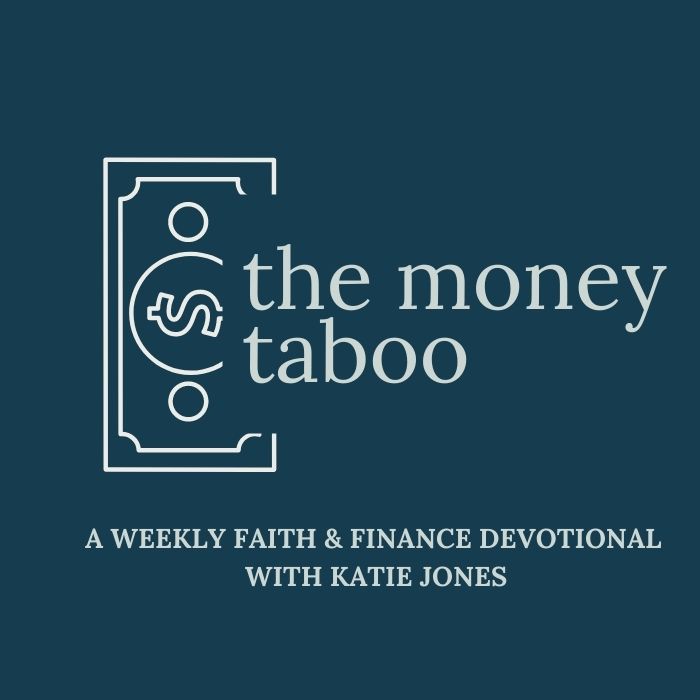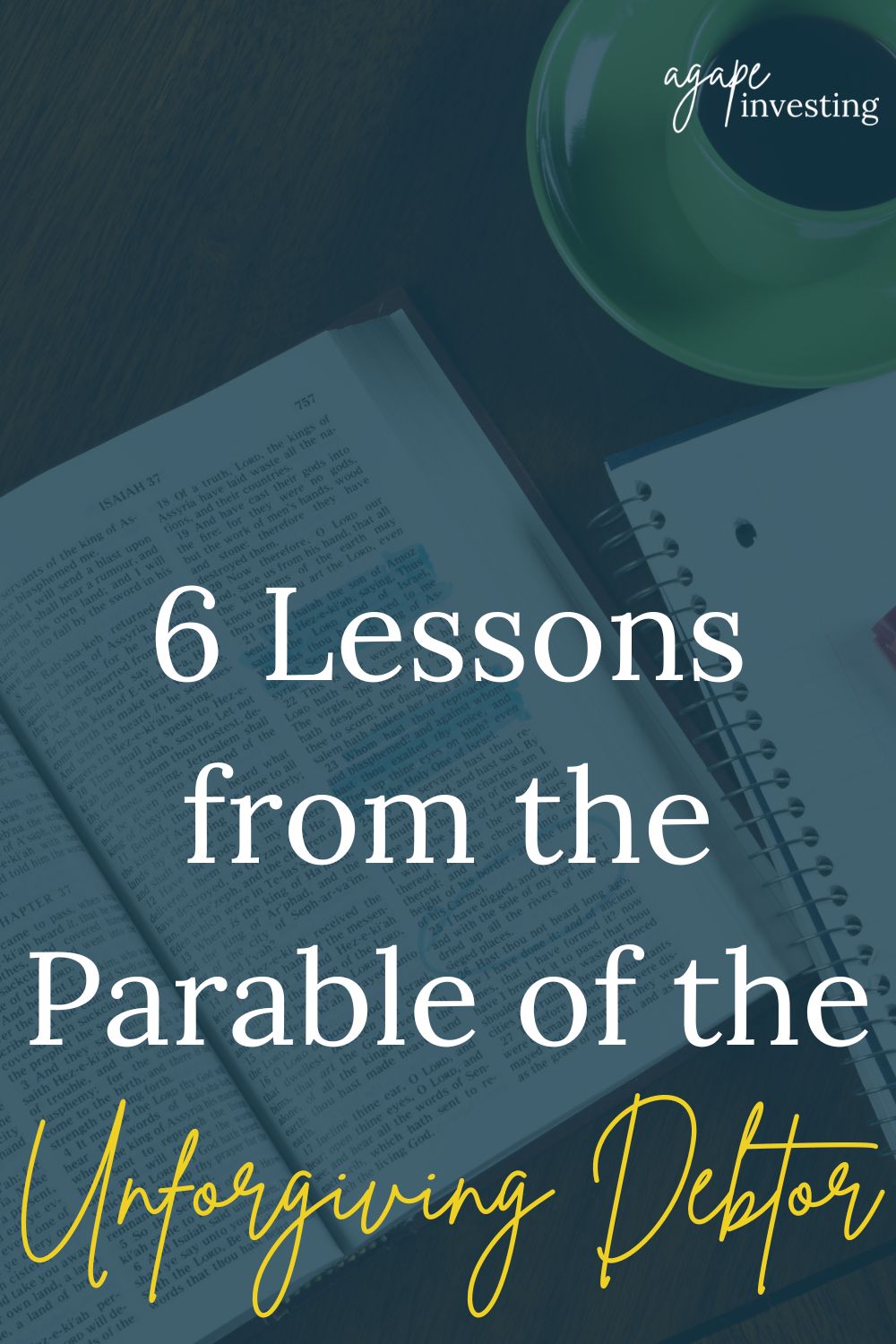6 Lessons from the Parable of the Unforgiving Debtor
Did you know that 13 of the 39 parables mention money? The Bible uses money as an example to teach much deeper lessons. I believe this is because money is something that we all use. It is a resource that God has given us to use to help build up His Kingdom. However, it is very easy to become entitled and feel as though we deserve more of it.
Jesus used parables to teach lessons about the Kingdom of God. His parables were intentional as they separated those with attentive ears from those with hardened hearts (Matthew 13:10-17). Jesus picked images and events that would have been significant to the people he was speaking to. This can make them especially difficult to understand today, but not impossible. There is still so much to be learned from each parable even though they are over 2,000 years old!
Here we read a dialog between Jesus and his disciples. This parable is Jesus’ answer to Peter’s question about forgiving others.
This parable is also known as the parable of the unmerciful servant. If you are not familiar with this parable, you can read it here below. Otherwise, you can scroll down to the next section to begin learning some of the lessons Jesus was teaching through this parable.
The Parable of the Unforgiving Debtor
21 Then Peter came to him and asked, “Lord, how often should I forgive someone[a] who sins against me? Seven times?”
22 “No, not seven times,” Jesus replied, “but seventy times seven!
23 “Therefore, the Kingdom of Heaven can be compared to a king who decided to bring his accounts up to date with servants who had borrowed money from him. 24 In the process, one of his debtors was brought in who owed him millions of dollars. 25 He couldn’t pay, so his master ordered that he be sold—along with his wife, his children, and everything he owned—to pay the debt.
26 “But the man fell down before his master and begged him, ‘Please, be patient with me, and I will pay it all.’ 27 Then his master was filled with pity for him, and he released him and forgave his debt.
28 “But when the man left the king, he went to a fellow servant who owed him a few thousand dollars.[d] He grabbed him by the throat and demanded instant payment.
29 “His fellow servant fell down before him and begged for a little more time. ‘Be patient with me, and I will pay it,’ he pleaded. 30 But his creditor wouldn’t wait. He had the man arrested and put in prison until the debt could be paid in full.
31 “When some of the other servants saw this, they were very upset. They went to the king and told him everything that had happened. 32 Then the king called in the man he had forgiven and said, ‘You evil servant! I forgave you that tremendous debt because you pleaded with me. 33 Shouldn’t you have mercy on your fellow servant, just as I had mercy on you?’ 34 Then the angry king sent the man to prison to be tortured until he had paid his entire debt.
35 “That’s what my heavenly Father will do to you if you refuse to forgive your brothers and sisters[e] from your heart.”
Matthew 18:21–35 NIV
What is the Moral Behind the Parable of the Unforgiving Debtor?
Fortunately, this parable isn’t too difficult to understand. In it, Jesus is comparing the Kingdom of Heaven to a king who desires to settle the debts owed to him. The king decides to forgive a very large debt owed to him because he had pity on his servant.
The main lesson from this parable is that we are to forgive and have mercy on those who have wronged us just as God has done for us. There is no limit to how many times we are to forgive those who have taken advantage of us, or who have committed a crime against us. We are to fully forgive others just as our Father has fully forgiven each one of our sins. This parable is a beautiful representation of God’s forgiveness.

Characters In The Parable of the Unforgiving Debtor
The King: This king represents the King of Kings, God. Just like the king in this parable, God will one day settle each of our accounts and hold us accountable for all of the debts we owe. “For we must all appear before the judgment seat of Christ, so that each of us may receive what is due us for the things done while in the body, whether good or bad.” (2 Corinth 5:10)
The King’s Servant: This is the first servant mentioned. I believe the king’s servant is supposed to represent us, the believers. Just as his debts were forgiven by the king, our sins have been forgiven by God. This servant owed a huge amount. Some translations say 10,000 talents, which in those days amounted to about 20 years of annual wages!
The Servant’s Servant: This is the second servant mentioned and he represents those who have done wrong to us as followers of Christ. I’m sure you can think of those who have sinned against you, and maybe it was simply taking behind your back. The point is, that this servant didn’t have a huge debt to repay (just a small amount of silver coins) to their own master. However, the king’s servant decides to hold this small debt against him and has the man jailed.

6 Lessons From the Parable of the Unforgiving Debtor
God Expects Us To Be Faithful and Honorable With Our Money
The king in this parable expected his servants to be faithful and honorable in the way they conducted his business. While we are here on earth, God entrusts a certain amount of money to each of us. He also expects us to be faithful and honorable with our money.
Just as any master would, the king in this parable decided to examine the work of his servants to ensure things were running smoothly. Only he finds that one of his servants has accumulated a very large amount of debt against him. The 10,000 talents equate to somewhere between $12 million and $1 billion today. Accumulating this enormous debt is definitely not the way to be a good money manager.
God Does Far More Than What We Expect
Did you notice that when the servant asked the king for more time to repay his debt back the king responded with something far greater than what was expected? The king could have easily said, “Sure, I’ll give you 5 more years to pay back as much as you can.” Instead, the king forgives the entire debt!
This is how our God’s grace is. We ask for one thing and then he blows us out of the water with his response. I have my own debt and you have yours. And we are just like the indebted servant, undeserving of even receiving more time to repay our debt, and yet God goes and forgives it all!
“Our God is able to do exceedingly abundantly above all we ask or think”
— Ephesians 3:20
Money Can Make Us Do Illogical Things
The king was moved to compassion as he realized the servant would never be able to pay back the debt in full and therefore decided to let him off the hook. He showed great mercy on this man. In the book of Proverbs, we learn that we are a slave to our lenders until our debt has been paid back. So now that this servant has been forgiven his debts, he is now financially free.
This newly acquired financial freedom however has gone to his head. It seems like this man now feels entitled to more money. Instead of living a life of gratitude for what the king has done for him, he becomes greedy. The reality that money makes us do illogical things is all to common even today. We can easily fall prey to the love of money and forget who it is that our money truly belongs to in the first place.
God Gives Us Second Chances
Even though the king’s servant didn’t manage his money well to begin with, he was given a second chance. God is constantly giving us second chances too! If you have been managing your money improperly and maybe making a lot of silly money mistakes, you always have another chance to redeem your financial situation.
However, at the end of the day, we will be held accountable for our actions. The servant’s master heard about his servant’s lack of mercy and was outraged! In the New King James version of this parable, the king says “You wicked servant!” after hearing how the servant did not forgive the very small debt of another.
Be Very Careful About Getting Into Debt
I think we can definitely read between the lines in this parable and understand that debt is not something to be messed around with. Sure, debt can help us afford things that might otherwise be out of reach, such as higher education or a home.
However, if we take on debt even if it is a small amount such as the second servant’s debt, we must have a plan to pay it back as soon as possible. Otherwise, it can be very easy to slip into a pit of debt that can be impossible to climb out of. The Bible is very clear about debt, it is harmful and should be avoided.
A couple of ways to avoid debt:
- Have a fully funded emergency fund
- Have a spending plan (Learn how to create a Value-Based Budget)
- Save up for future expenses (Read: What Does the Bible Say About Saving Money)
The Principle of Forgiveness
Jesus’ response to Peter’s question is this parable. This parable gives us the principle of forgiveness that He wants us to understand which is, ”The one forgiven much is also responsible to forgive much.” Of course, you and I will fall short of the ultimate mercy that God showed to us through Jesus’ death on the cross. However, we should not be filled with an unforgiving spirit. Rather we should have Christ-like attitudes when it comes to evil deeds that are done against us.
Understanding this principle of forgiveness is how we can show thanks for the forgiveness of God. Forgiving others may seem difficult at times, but you have been equipped with the Holy Spirit who will help you.
In the same way, the Spirit helps us in our weakness… (Romans 8:26)
Become An Excellent Money Manager
Now you have a better understanding of the Parable of the Unforgiving Debtor. I hope that it helps you to become a better steward of the money God has entrusted to you and I also pray that you can apply the principle of forgiveness into your own life.
If you are ready to take the next step in becoming an excellent money manager, be sure to grab my FREE Biblical Money Management Checklist. This detailed checklist is your go-to guide for becoming an excellent money manager so you can focus the resources God has given you on pursuing your unique calling.

You May Also Like
What Does the Bible Say About Credit Cards?
Bible Verses About Budgeting
Bible Verses About Financial Stewardship of Money
The Best Books About Faith and Money



